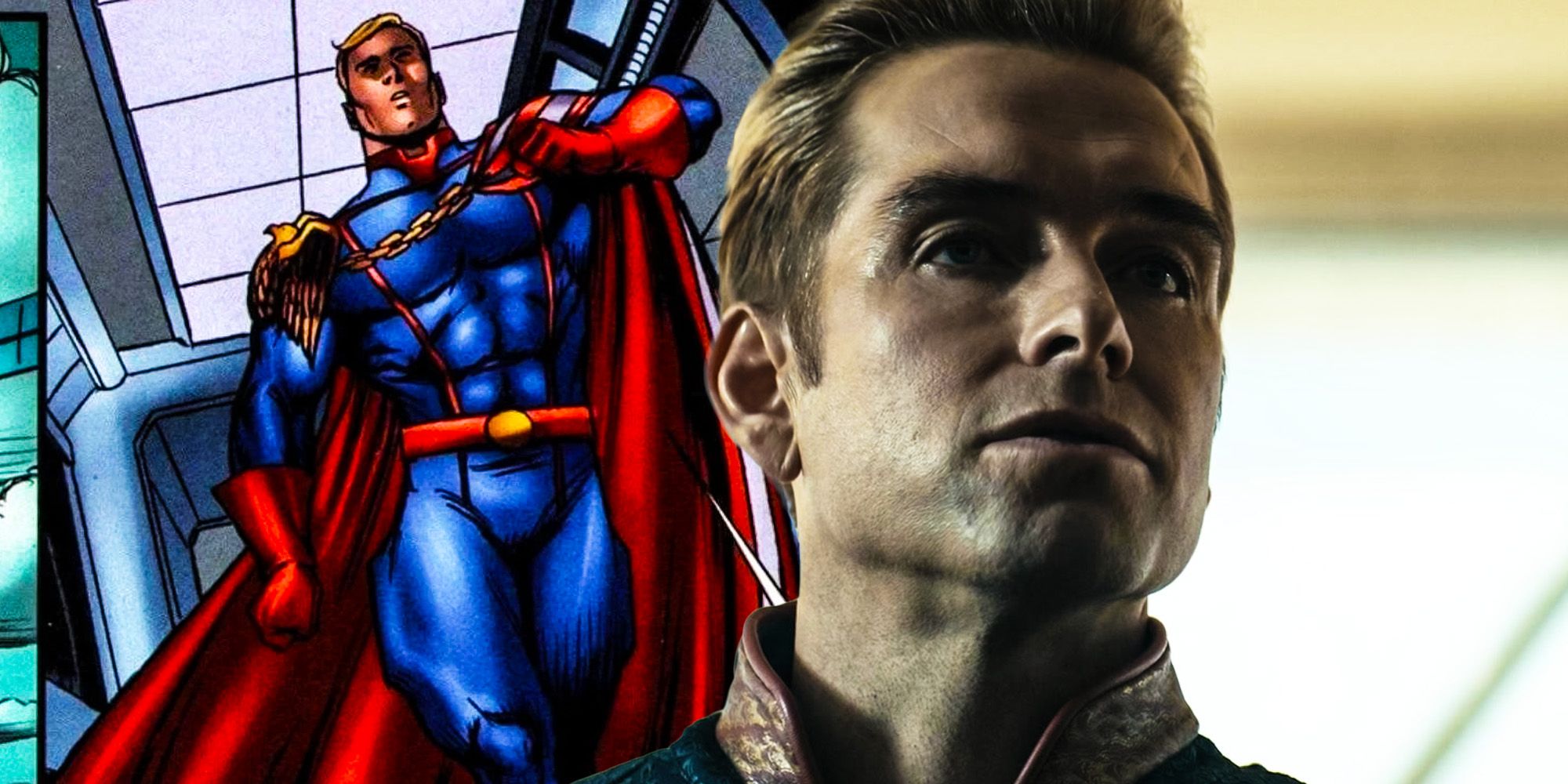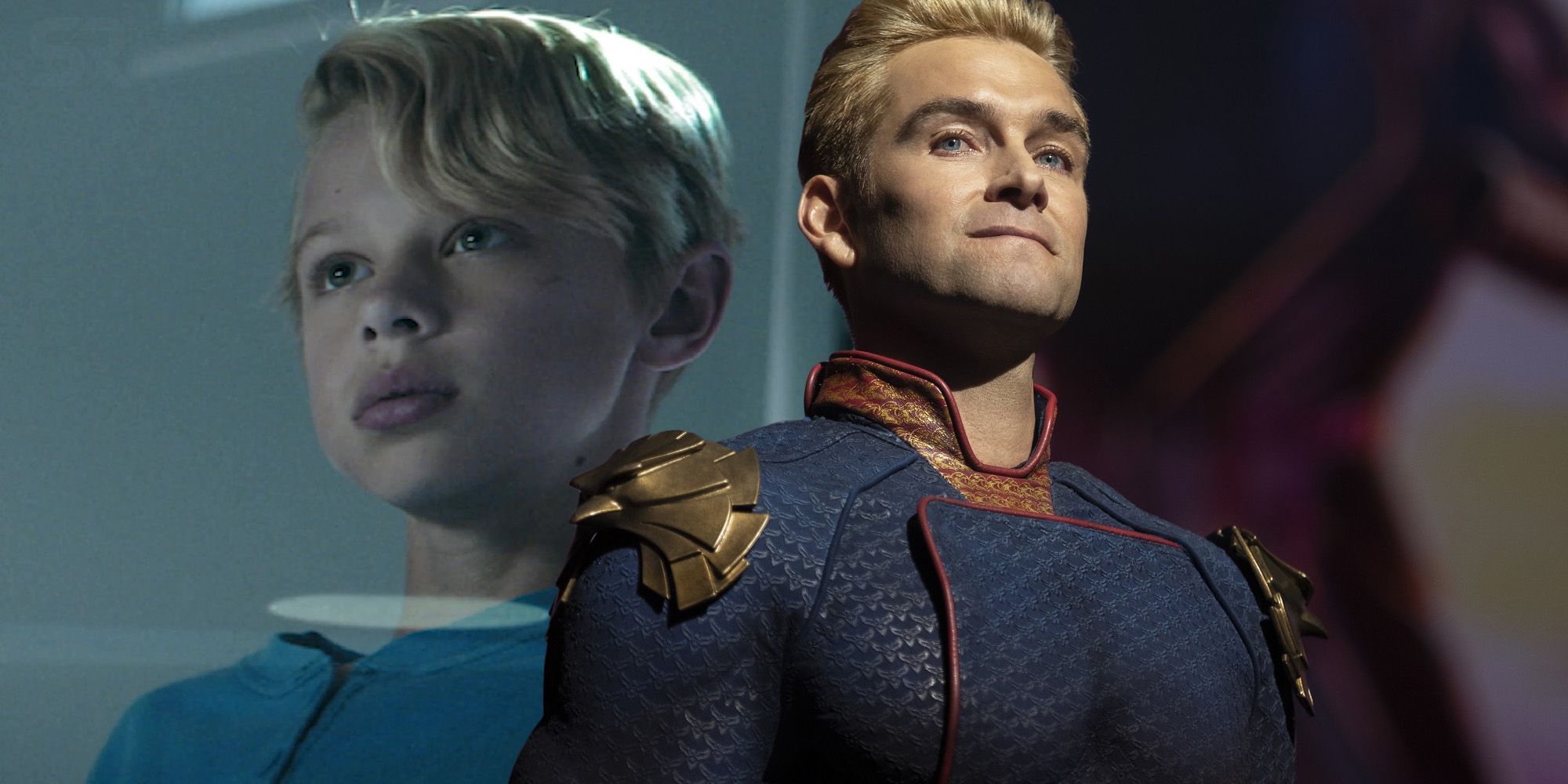The Boys: Why Does Homelander Age? Theories & More
In a world populated by superhumans, where the extraordinary is commonplace, why does Homelander, the seemingly invincible apex predator of "The Boys," exhibit the telltale signs of aging? Is his mortality a crack in the facade of his godlike persona, a vulnerability that makes him more terrifying than any ageless, perfect being could ever be?
Homelander, a product of Compound V and the flagship hero of Vought International, is more than just a Supe; he's a symbol. But unlike many of his genetically enhanced brethren who seem perpetually suspended in a youthful prime, Homelanders visage subtly, yet undeniably, reflects the passage of time. This divergence from the standard Supe narrative isnt merely cosmetic; it delves into the very nature of his powers, his psychological state, and the storytelling fabric of "The Boys" itself. The question of his aging unravels layers of complexity, painting a portrait of a character far more nuanced and disturbingly human than his invincibility suggests.
| Category | Information |
|---|---|
| Character Name | Homelander (John Gillman) |
| Series | The Boys |
| Universe | The Boys (Amazon Prime Video) |
| Abilities | Superhuman strength, flight, heat vision, enhanced senses, near invulnerability |
| Source of Powers | Compound V injection |
| Affiliation | Vought International |
| Actor Portrayal | Antony Starr |
| Website | Amazon Prime Video - The Boys |
The enigma of Homelanders aging isn't explicitly solved within the confines of the series, and that's precisely the point. It allows for a richer exploration of his character and the world he inhabits. Numerous theories attempt to grapple with this phenomenon, each offering a potential window into the truth, or perhaps, a reflection of the multifaceted nature of his existence. One prevailing hypothesis centers on the very source of his extraordinary abilities: Compound V. This potent serum, responsible for bestowing Supes with their powers, isn't a one-size-fits-all solution. It's a volatile cocktail of genetic manipulation, capable of producing unforeseen and often detrimental side effects.
- Discover The Magic Behind Walk On By Dionne Warwicks Hit
- Who Is Mozzys Wife Unveiling The Mystery Of Mozzy Wife Name
The argument here is that Compound V, while granting Homelander his godlike strength, flight, and heat vision, may have simultaneously ignited a premature aging process within his cells. This could manifest as an acceleration of cellular degradation, a disruption of natural regenerative mechanisms, or even an unforeseen interaction with his pre-existing genetic makeup. The fact that other Compound V recipients, such as the enigmatic Black Noir and the speedster A-Train, also exhibit signs of wear and tear albeit to varying degrees lends credence to this theory. It suggests a systemic consequence of the serum, a Faustian bargain where power comes at the cost of accelerated mortality.
However, the purely biological explanation only scratches the surface. "The Boys" is as much a commentary on the human condition as it is a superhero satire, and the possibility that Homelander's aging is intrinsically linked to his psychological state cannot be dismissed. As the narrative unfolds, Homelander's carefully constructed facade of unwavering strength and patriotic fervor begins to crumble. The cracks in his psyche widen, revealing a deeply insecure, emotionally stunted, and ultimately, profoundly damaged individual. His longing for genuine connection, his crippling fear of vulnerability, and his unchecked rage all contribute to a volatile inner landscape.
This internal tempest, many argue, could be manifesting physically through his accelerated aging. The sheer stress of maintaining his public image, coupled with the internal conflict of his fractured identity, could be taking a devastating toll on his body. This interpretation aligns with real-world observations where chronic stress and psychological trauma have been linked to premature aging and a host of health problems. In this context, Homelanders wrinkles and subtle changes in his physical appearance become visual representations of the rot within, the corrosive effects of his own self-destructive tendencies. It is a powerful statement on the inextricable link between mind and body, even for those who possess seemingly superhuman resilience.
- All About Russell Wilsons Parents The Untold Story Finally
- Who Are Damon Wayans Jrs Kids Ages Names More
Beyond the biological and psychological explanations, Homelander's aging also functions as a potent narrative tool, adding layers of complexity to his character and the themes explored in "The Boys." In a genre often defined by ageless heroes locked in eternal battles, the simple act of aging grounds Homelander in a reality that challenges the very foundations of the superhero mythos. It serves to humanize him, albeit in a twisted and unsettling way. His wrinkles are not just lines on his face; they are reminders of his mortality, of the finite nature of his power, and of the consequences of his actions.
This vulnerability, however slight, makes him more relatable, more terrifying, and ultimately, more compelling. It allows the audience to connect with him on a level that would be impossible if he remained a flawless, unyielding symbol of strength. We see glimpses of his fear, his desperation, and his growing awareness of his own limitations. These moments of vulnerability, amplified by his aging appearance, create a sense of unease and anticipation, forcing us to confront the uncomfortable truth that even the most powerful beings are not immune to the ravages of time.
Moreover, the decision to age Homelander injects a palpable sense of realism into the otherwise fantastical world of "The Boys." It underscores the idea that even in a society populated by superhumans, fundamental biological processes remain in effect. This grounding in reality elevates the show beyond mere superhero spectacle, transforming it into a thought-provoking commentary on power, celebrity, and the human condition. The subtle, almost imperceptible changes in Homelanders appearance serve as a constant reminder that his powers are not absolute, that he is still bound by the laws of nature, and that his reign, like all reigns, will eventually come to an end.
"The Boys," in its exploration of Homelander's character, consistently subverts expectations and challenges genre conventions. The decision to allow him to age is just one example of this deconstructionist approach. By depicting a superhero grappling with the realities of aging, the show forces us to reconsider our preconceived notions about heroism, power, and invincibility. It raises profound questions about the long-term consequences of genetic manipulation, the psychological toll of unchecked power, and the human cost of maintaining a flawless public image.
The aging of Homelander can be considered a crucial piece of his character's complex development, adding shades of gray where stark black and white once existed. It provides an avenue to dissect his inner struggles and anxieties, as the physical alterations serve as a stark reminder of his internal battles. He is not simply a villain, nor is he a hero, but a deeply flawed individual grappling with the weight of his own existence and the limitations that come with it. This complexity invites a deeper exploration of his motivations and actions, making him a more compelling and thought-provoking character.
The existence of Compound V is fundamental to the very premise of "The Boys," serving as the catalyst for superhuman abilities and, potentially, the reason for Homelander's unique aging process. This mysterious substance, a concoction of genetic engineering and scientific experimentation, has the power to rewrite human DNA, granting extraordinary abilities that defy the laws of nature. However, its effects are far from predictable, and its long-term consequences remain largely unknown. One prevailing theory suggests that Compound V disrupts the body's natural aging mechanisms, accelerating certain biological processes while slowing others down. This imbalance could explain why Homelander ages, despite his enhanced physique and supposed invulnerability.
Further research into Compound V and its effects on the human body could not only shed light on Homelander's aging but also have broader implications for medical science. By understanding how this substance alters human physiology, scientists could potentially develop new treatments for age-related diseases, genetic disorders, and other debilitating conditions. However, the ethical implications of such research are vast and complex, raising questions about the potential for abuse and the dangers of tampering with the fundamental building blocks of life. The question then shifts; what safeguards are in place to ensure ethical practice.
Homelander's experience with aging is a direct challenge to the traditional tropes and expectations of the superhero genre. Typically, superheroes are portrayed as eternally youthful beings, immune to the ravages of time and the limitations of mortality. They stand as symbols of unwavering strength and invincibility, inspiring hope and admiration in the hearts of ordinary citizens. But Homelander's aging shatters this idealized image, revealing the fragility and vulnerability that lies beneath the surface of even the most powerful beings. The notion that these figures are not exempted from natural laws becomes a central theme for exploration, leading to questions about their actual strength.
This subversion of genre conventions allows "The Boys" to explore deeper themes about power, mortality, and the human condition. It forces us to confront the uncomfortable truth that even superheroes are not immune to the passage of time, and that their powers come with a price. It also raises questions about the nature of heroism and the qualities that truly define a superhero. Is it their strength and invincibility, or is it their ability to overcome their own limitations and vulnerabilities in order to protect others? Homelander's aging challenges us to reconsider our definition of heroism and to appreciate the complexities and nuances of the human experience.
Question 1: Why does Homelander appear to age while other Supes seem to retain a more youthful appearance? The exact mechanisms aren't spelled out, but the most prevalent theory points to Compound V. This potent substance, responsible for bestowing powers, might also trigger an accelerated aging process as a side effect. This idea is strengthened by the fact that other Supes exposed to Compound V also exhibit aging signs, though to varying degrees, implying it could be a serum-related consequence.
Question 2: Could Homelander's aging be tied to his psychological state, reflecting his inner struggles and mental deterioration? There's a theory suggesting Homelander's aging reflects his internal state. His unstable mental health and mounting inner turmoil may cause physical aging, as the stress and anxieties take a toll on his body. This psychological angle adds depth to the character, tying his physical decay to his mental decline.
While the precise cause of Homelander's aging remains a mystery, these theories present intriguing explanations by examining the interaction between biology and psychology. Homelander's aging serves as a unique narrative device, giving his character more nuance and questioning established superhero norms.
The question of "Why does Homelander age?" has led to an examination of the complex interplay between biology, psychology, and storytelling in "The Boys." While the definitive answer remains unknown, the theories surrounding his aging offer valuable insights into the character's unique journey. Homelander's aging challenges superhero conventions, humanizes him to a degree, and underscores the fragility of even the most extraordinary power. Ultimately, it acts as a reminder that even the most powerful beings are not immune to the passage of time and its inevitable consequences. The question becomes, what lessons about humanity and power can be drawn from his journey?
- Untold Story Lil Waynes Childhood And Rise To Fame
- All About Does Rob Zombie Have Kids Family Amp More Facts

Why Does Homelander Age Too A Superhero's Biological Conundrum

Debunking The Enigma Why Homelander Ages In "The Boys"

The Boys Everything We Know About Homelander's Origins